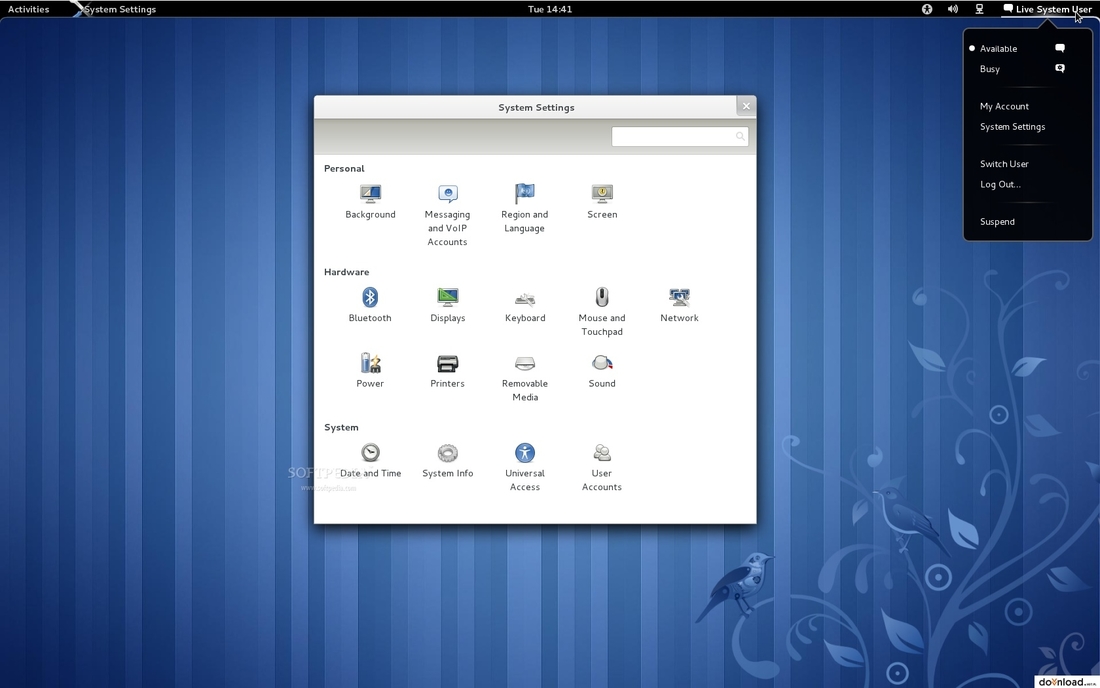Start Tftp Server Fedora 19 Eol

A object of the type product which describes the product javavm may look like this. Most time these operators are: get.
Slackware is a Linux distribution created by Patrick Volkerding in 1993. Originally based on Softlanding Linux System, Slackware has been the basis for many other. RedWall Firewall was a bootable CD-ROM firewall based on Gentoo Linux. Its goal was to provide a feature-rich firewall solution together with a web-based interface.
Even more » Account Options. Sign in; Search settings.
Objects (returns the objects). Hashes (Variant, which delivers for performance reasons the backend objects readonly.
Fixed Issues. Fixed an issue where a high-availability cluster might unexpectedly switch over when the active server is busy. Fixed an issue where SHA alternatively. This manual is written for all who want to gain a deeper insight into the mechanisms and the tools of the client management system opsi ("open pc server integration"). The SCO Group (SCO) was a provider of software solutions for small- to medium-sized businesses (SMBs) and replicated branch offices. SCO solutions include UNIX and. PHP 5 ChangeLog Version 5.6.31. Core: Fixed bug #73807 (Performance problem with processing post request over 2000000 chars). Fixed bug #74111 (Heap.
Start Tftp Server Fedora 19 Eolith
For a large count of objects this method is much faster then calling get. Objects). create (create one object comfortable). Objects (create one or more objects). Objects (delete one or more objects). Free Software For Sending Bulk Emails. Idents (returns the object id’s). Object (create a new object). Object (update a object, if the object doesn’t exists it will be created).
Objects (update a bundle of objects). The method names are concatenated: < object name>. If you are using attributes the returned object has all attribute keys, but only values the attribute you asked for and for all attributes which are used to identify this object.

All other attributes have the value none. For Example you will get by calling the method product. For example if you are using the filter .
Start Tftp Server Fedora 19 Eole
The idea is that you can see here the client specific data and in audit. Hardware only one entry for a network card which is used in all your computers. The idea in this object is to see client specific data and in Audit.
Hardware only the generic. That way, for example, you can see here only one entry for a network card, which is used in all your computers. The idea is that you will see here the client specific data and in audit. Software only one entry for a office software which is used in all your computers. Example for a audit. Software. On. Client object: method audit.
Software. On. Client. The idea is that you will see here only one entry for a office software which is used in all your computers. Example for a audit.
Software object: method audit. Software. The host. Ids are the list of clients this method should work on. In the older host.
Control methods it is allowed to omit this parameter, which means send to all. This has caused some trouble to people which tried this with methods like. Control. So with opsi 4. Ids is not any more allowed for the host. Control. This is the most generic host. Control. Safe method, because you may start any possible method.
The best way to find out what is possible, is to have a look at control interface https: //< client. Id> :4. 44. 1.
Parameters: method *params host. Idshost. Control. Safe. The object. Id is normally the client. Id to which the log belongs. The first is used for product groupings and the last is used for grouping hosts. Creating a group of hosts is possible through the method group.
The parameters of the method are id, a description, notes and the parent. Group. Id (ID of the parent group). Only the ID is required - everything else is optional. The ID is also the name of the group.
Important. In opsi 4. ID. This ID must be unique throughout the opsi groups. To create a first group from the commandline we can now issue the following command: opsi- admin - d method group. Open. LDAP - that means, that a client can only be member of one group.
There is a root group with the ID clientdirectory that assumes that exact behavior for any group / client inside. Any client not in a subgroup of clientdirectory will be moved to another special group with the ID NOT. You probably have noticed that our earlier query to opsi did not show us any signs of clients. That is because the assignment from a client to a group is taken care of another type of object: object. To. Group. To have a client at hand we will first create one: opsi- admin - d method host? That is again our group type.
Just execute the following: opsi- admin - d method object. To. Group. The following statements will do this for you: opsi- admin - d method group. This is meant mainly for orientation and not as a complete reference. The short description does not necessarily provide all information you need to use this method. Check whether the authentication on the server was successful or not. Client client. Name, domain, description=None, notes=None.
Creates a new client. Group group. Id, members = . This is done for.
These extensions has to be written as Python code in the /etc/opsi/backend. Manager/extend. d directory. Extensions are loaded .